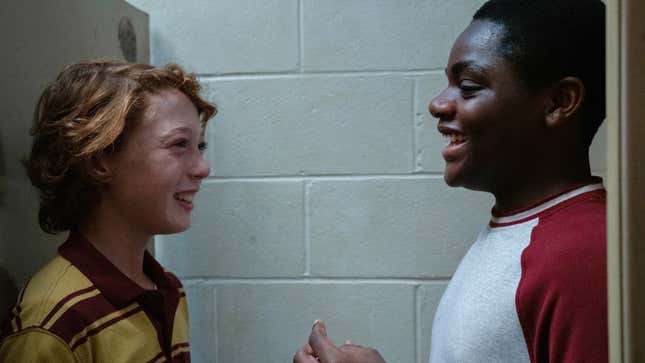In ‘Armageddon Time,’ a White Director Avoids a Hollywood Ending About Racism
James Gray set out to make "the anti-nostalgia movie" about his relationship with a Black classmate and anti-Blackness in the '80s.
EntertainmentMovies

Director James Gray said he wrote his new movie, Armageddon Time, in 2019, but the endeavor feels very 2020. It is a reckoning. A portrait of Gray’s youth in Queens in the early ‘80s, it is, by Gray’s design, “the anti-nostalgia movie.” It concerns itself mostly with the negotiations his avatar Paul (Banks Repeta) makes with a Black classmate in sixth grade and his casually racist family. It admirably avoids valorizing Paul’s upstream swim—he’s an incompetent white savior, caving frequently to societal pressure and leaving his disadvantaged friend Johnny (Jaylin Webb) in the lurch. How much could be reasonably expected from a sixth grader in 1980 is another question, though, and there is an argument to be made that by merely presenting Paul’s ability to think outside what he’s being fed by his family, Gray stands to soak up some virtue. His character might not be admirable, but isn’t it admirable for Gray to admit as much in public?
The politics of Armageddon Time trap Gray in a catch-22: It’s beyond time that white directors start considering race and racism, especially as it pertained to their own lives and privilege, and yet because of said privilege, telling these stories risks pat, well-isn’t-that-a-shame conclusions that don’t move the needle but instead reaffirm privilege. They can take on the slimy appearance of sophisticated gloating.
-

-

-

-

-

-

-

-

-

-

-

-

-

-

-

-

-

-

-

-

-

-

-

-

-

-

-

-

-

-

-

-

-

-

-

-

-

-

-

-








































